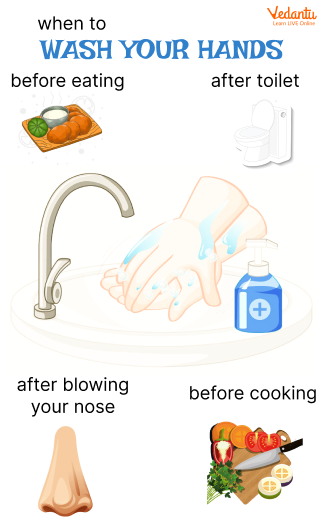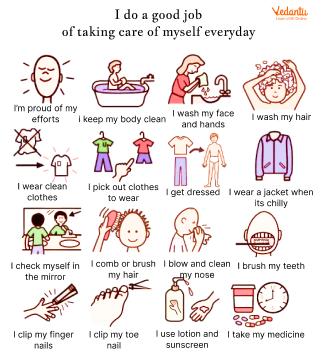




How to Use Printable Flashcards for Fun, Effective Hygiene Lessons
Personal hygiene entails keeping all parts of the external body clean and healthy. It is critical for both physical and emotional well-being. In people with poor personal hygiene, the body provides an ideal environment for germs to thrive, putting them vulnerable to infection. People may avoid a person with poor personal hygiene on a social level, which can lead to isolation and loneliness.
Personal hygiene can take various forms, which are discussed below.
Dental Hygiene
More than just keeping your teeth white is part of dental hygiene. Gum disease and cavities can be avoided with a healthy oral care program. It can also prevent bad breath.
Body Hygiene
The human body is covered in millions of sweat glands. The action of microorganisms breaking down perspiration produces a stench or body odour. Washing the body helps to avoid skin irritation while also removing microorganisms that create odour. Hair washing removes oil and makes a person appear clean and fresh.
Hand washing
Hand washing is one of the most effective techniques to prevent the transmission of infectious diseases.
Washing hands at particular times is recommended by the Centers for Disease Control and Prevention (CDC)Trusted Source:
Prior to, during, and after food preparation.
Prior to consuming food.
Before and following the care of anyone who is vomiting or has diarrhea.
Before and following the treatment of a cut or wound.
After using the restroom.
After you've blown your nose, coughed, or sneezed.
After changing a child's diapers or cleaning up a messed-up child.
After coming into contact with rubbish, filthy surfaces, or things.
Following any contact with pets or pet-related goods, such as food.

Hand Wash Flashcard
Hygiene Education for Children
From a young age, parents and caregivers should teach youngsters how to keep themselves clean. When a child reaches the age of twelve months, they can begin brushing their teeth with toothpaste. It is critical to begin flossing when the spaces between a child's teeth close. Encourage children to help clean themselves as soon as they are old enough to do so.

Personal Hygiene Flashcards
Routine Hygiene Advice
The following are some helpful hints for developing a hygiene routine:
Make it a habit: A new habit can become a regular part of life with everyday practice. Choose one area to concentrate on and practice it until it comes naturally.
Set reminders: Using the notes app on your phone might help you remember important chores.
Use incentives: A sticker chart can be a great motivator for kids to keep up with their personal hygiene.
Invest in beautiful toiletries: Some people may be more likely to stick to their personal hygiene routine if they use products that smell lovely.
Conclusion
Personal cleanliness is beneficial to one's health, and most people should shower on a regular basis. Water may be used for more than just bathing and grooming; it can also be used for pain relief and treatment through hydrotherapy. Cleanliness has a good impact on a person's social life as well as their physical and mental wellbeing.
Therefore, a healthy body and mind necessitate the development and maintenance of a personal hygiene routine.
FAQs on Personal Hygiene Flashcards PDF: Help Kids Master Cleanliness
1. What is personal hygiene and health?
Personal hygiene refers to the way you look after your body. This regimen includes bathing, hand washing, teeth brushing, and other hygiene behaviors. They can stay on your body for a long time and, in certain situations, make you sick. Personal cleanliness habits can assist you and those around you avoid getting sick.
2. What is the best way to teach my child about hygiene?
Your young child will most likely imitate your personal hygiene routine. When you wash your hands, brush your teeth, or take a bath or shower, they might want to do the same! Setting a good example for your child is a terrific approach to teach them about hygiene. Remind your child that maintaining good cleanliness can help them stay healthy and avoid feeling ill. You'll find loads of enjoyable methods to teach your child about cleanliness in this convenient collection, including teeth brushing exercises, handwashing games, and catchy songs.
3. What aspect of personal hygiene is the most crucial?
The most crucial personal hygiene habit is hand washing. While the other responses are vital components of personal hygiene, washing your hands is by far the most critical step you can take to avoid food-borne disease.















